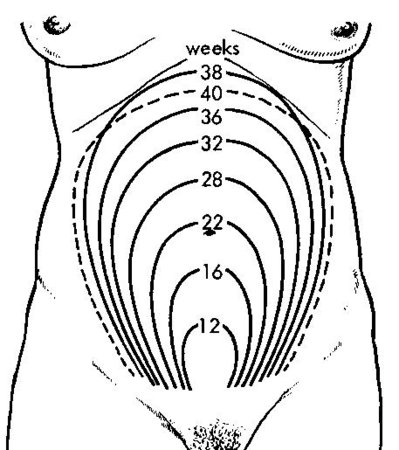How Many Ultrasounds Are Recommended During Pregnancy?
During pregnancy, it’s crucial to ensure the well-being of both the mother and the developing baby. One important aspect of prenatal care is ultrasound examinations. These imaging techniques provide valuable insights into the baby’s growth and development, offering peace of mind and helping to identify any potential concerns early on. In this article, we will delve into the frequency of ultrasounds during pregnancy, exploring their types, benefits, and limitations.
Ultrasound examinations use sound waves to create images of the fetus and the uterus. They are non-invasive and painless, making them a safe and effective way to monitor pregnancy. The frequency of ultrasounds recommended during pregnancy varies depending on individual circumstances and medical guidelines. Generally, most women can expect to have at least three ultrasounds throughout their pregnancy.
How Many Ultrasound In Pregnancy

The number of ultrasounds you have during pregnancy will vary depending on your individual circumstances. However, most women will have at least two ultrasounds during their pregnancy: one in the first trimester and one in the second trimester.
The first trimester ultrasound is usually done between 6 and 8 weeks of pregnancy. This ultrasound is used to confirm the pregnancy, determine the due date, and check for any abnormalities. The second trimester ultrasound is usually done between 18 and 22 weeks of pregnancy. This ultrasound is used to check the baby’s growth and development, and to look for any abnormalities.
Additional Ultrasounds
In some cases, you may need to have additional ultrasounds during your pregnancy. These additional ultrasounds may be necessary if you have a high-risk pregnancy, if you are experiencing any complications, or if your doctor wants to get a closer look at your baby.
What to Expect During an Ultrasound
During an ultrasound, you will lie on a table and a transducer will be placed on your abdomen. The transducer will emit sound waves that will create images of your baby. The images will be displayed on a monitor so that you and your doctor can see them.
Benefits of Ultrasounds
Ultrasounds are a safe and painless way to monitor your baby’s health during pregnancy. Ultrasounds can help to:
- Confirm the pregnancy
- Determine the due date
- Check for any abnormalities
- Monitor the baby’s growth and development
- Look for any complications
FAQ
Why are ultrasounds important during pregnancy?
Ultrasounds provide valuable information about the baby’s growth, development, and well-being. They can detect potential abnormalities, assess the baby’s position, and help determine the due date.
What are the different types of ultrasounds used in pregnancy?
There are several types of ultrasounds used in pregnancy, including transvaginal, abdominal, and Doppler ultrasounds. Each type has its own purpose and provides different information.
How often should I have ultrasounds during pregnancy?
The recommended frequency of ultrasounds during pregnancy varies depending on individual circumstances and medical guidelines. Generally, most women can expect to have at least three ultrasounds throughout their pregnancy.
What are the benefits of ultrasounds?
Ultrasounds offer numerous benefits, including providing reassurance about the baby’s well-being, detecting potential problems early on, and helping to determine the baby’s position and due date.
Are there any risks associated with ultrasounds?
Ultrasounds are generally considered safe, but excessive use may be associated with potential risks. It’s important to follow the recommended guidelines and discuss any concerns with your healthcare provider.





